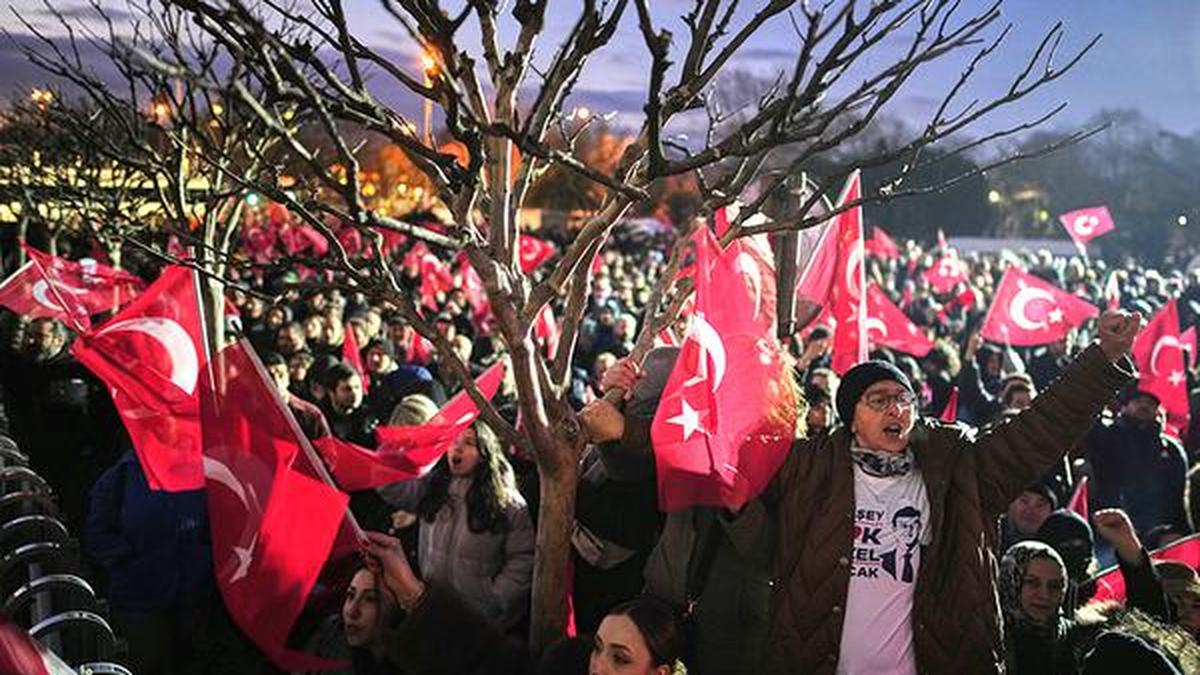Voices muted: People gather outside the City Hall to protest the arrest of Istanbul Mayor Ekrem Imamoglu in Istanbul, Turkiye.
| Photo Credit: AP
With anti-government protests sweeping across Turkiye, the authorities have used all technological means to try to curb them, from restricting Internet access to using facial recognition to identify protesters, who have been forced to adapt.
Amid a ban on protests, nearly 2,000 people have been arrested in connection with the demonstrations that erupted on March 19 following the detention of Istanbul’s mayor Ekrem Imamoglu on graft charges.
As well as those apprehended in the streets, many others have been arrested in pre-dawn raids at their homes after being identified from footage or photos taken by the police during the demonstrations.
So far, 13 Turkish journalists have been detained for covering the protests.
For Orhan Sener, a digital technologies expert, the use of technology marks a major departure from 2013, when a small protest against plans to demolish Gezi Park in central Istanbul snowballed into a wave of national unrest over the rule of Recep Tayyip Erdogan, who was Prime Minister at the time.
“The security forces’ information technology capabilities have increased considerably since then,” Mr. Sener said.
Faces masked
“Today, when you join a demonstration in Turkiye, your face is recognised by a camera and the system cross-references it with your profile on social networks.”
Faced with such a risk, many demonstrators are now covering their heads and faces with hats, masks and scarves.
In Istanbul, police have frequently surrounded protesters and ordered them to uncover their faces so they can be filmed, refusing to let them go if they do not, generating widespread distress for many young people.
“Every means of pressure generates a countermeasure. We will soon see greater use of different clothing, glasses or make-up to thwart facial recognition technologies,” said Arif Kosar, who specialises in the impact of new technologies.
Immediately after Imamoglu’s arrest in a pre-dawn raid, the authorities started reducing bandwidth for internet users in Istanbul, rendering access to social networks impossible for 42 hours.
Published – March 31, 2025 11:43 am IST

